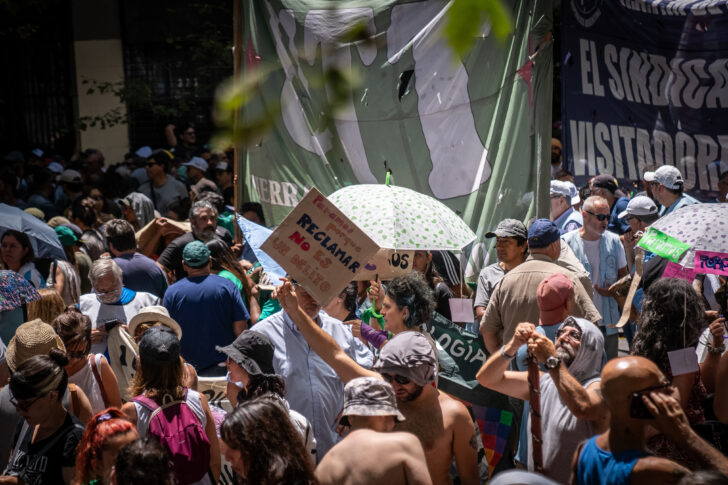United Nations special rapporteurs examined the protocol criminalizing protests and the reforms within the Omnibus bill on this matter to assess their compatibility with international human rights law. These expert mechanisms conveyed a message to the Argentine government, pointing out that the implementation of these measures goes against the State’s international obligations.
The UN’s response was prompted by a complaint filed by Argentine labor unions, trade, social, political and human rights organizations. The complaint cautioned that these measures pose serious risks to the protection of fundamental democratic rights in Argentina. It also highlighted that the executive power has taken additional intimidating measures, such as charging trade union and social organizations for the costs of police operations, an obligation that rests with the State.
In a letter addressed to the Argentine government, the rapporteurs analyzed the resolutions and the draft law in terms of compatibility with international law and Argentina’s international commitments. They pointed out that it is the State’s duty to ensure the exercise of assembly and other rights during demonstrations.
The letter was signed by the Special Rapporteurs on the promotion and protection of the right to freedom of opinion and expression; on the rights to freedom of peaceful assembly and of association; and on the situation of human rights defenders.
On Resolution 943/2023: protocol for maintaining public order in the event of road closures
The UN views the implementation of this protocol as involving the criminalization of social protest through the use of criminal law. The report underscores that while restrictions on freedom of movement may occur, this does not diminish the protection afforded to the right to protest. The rapporteurs assert that the interruption of vehicular or pedestrian traffic does not constitute violence, and this circumstance does not warrant the intervention of security forces. They emphasize that the primary obligation of these forces during a protest is not to control or restore order but to safeguard and facilitate peaceful demonstrations. Furthermore, they clarify that dispersal is authorized only in exceptional cases.
The UN underscores that the Human Rights Committee has determined that “assemblies involve a legitimate use of public spaces and other places, and, given their inherent nature, may cause some level of disruption to normal activities. Such disturbances should be allowed unless they impose a disproportionate burden, in which case authorities must be able to justify the restrictions in detail.” Additionally, it asserts that by imposing these directives, the executive branch is contravening the separation of powers and encroaching upon powers exclusive to the judiciary.
On Resolution 949/2023
In the report, the rapporteurs state that, as a general rule, holding organizers of a march responsible for a security operation is incompatible. Such a practice is only legal in exceptional circumstances not addressed by the resolution.
On the limitations to the right to protest in the Omnibus Bill
In their analysis, the rapporteurs highlight that the proposed amendment to Article 194 of the Criminal Code represents a clear attempt to criminalize the exercise of the right to peaceful assembly. Additionally, they point out that Article 328 of the bill seeks to hold organizations accountable for damages that demonstrators might cause, potentially constituting a restriction on the right to assembly.
Moreover, the UN emphasizes that requiring organizers to request State authorization to hold a demonstration is contrary to international law. While a notification system may be designed to facilitate the protection of assembly and the organization of movement, it should not de facto serve as an authorization or be employed to hinder the exercise of this right by imposing difficult-to-meet requirements, such as limiting the duration and estimated number of participants.

